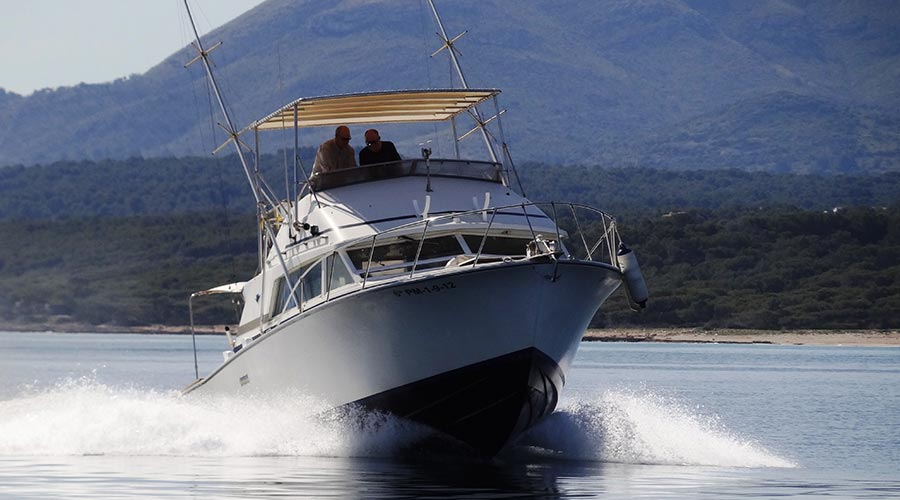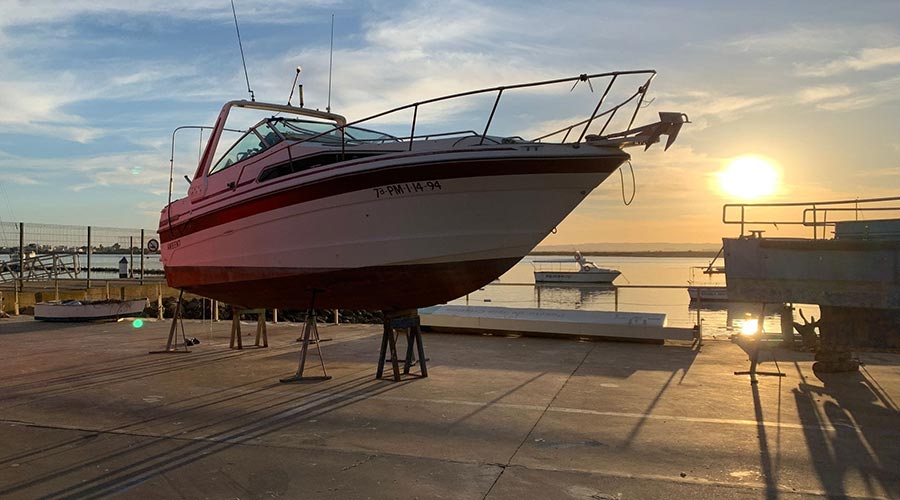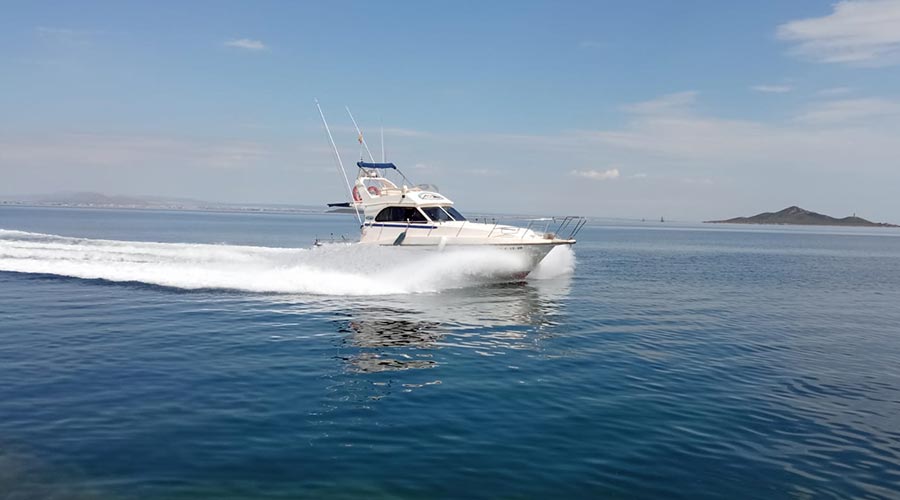What is
the CE marking of a pleasure boat?


Many products, including recreational boats, jet skis and their components, must bear the CE mark in order to be placed on the market or put into service in the EU. The CE marking shows that the boat has been evaluated and is in accordance with Directive 2013/53/EU and complies with the essential safety and environmental protection requirements required by it.
The CE marking for recreational boats is regulated by Royal Decree 98/2016, of March 11, which regulates the safety, technical and marketing requirements of jet skis, sports boats and their components, which transposes the European Directive 2013/53/EU to the Spanish legal system. The aforementioned directive repeals and replaces Directive 94/25/EC modified by Directive 2003/44/EC.
It is applicable to all boats that have been placed on the Community market after June 1998 and to new-build models. The CE marking of boats comprises three different aspects or certifications: Design and Construction, Exhaust Emissions and Noise Emissions.
how can we
help you?


Certification Development
The CE certification issued by Eurocontrol certifies compliance with Directive 2013/53/EU.
Certification begins with a formal request for noise emissions o para exhaust emissions by the shipyard, importer or individual owner.
The vessel or component must be attested by an authorized inspector. For vessels, it is necessary to carry out dry inspections (to evaluate the structure and live work) and afloat tests (fundamentally stability, maneuvering and noise).
Access to the facilities, stranding and launching, commissioning of equipment and preparation of materials for tests or trials will be the responsibility of the applicant, as well as the modifications or corrections that are necessary to obtain the certification.
The applicant or his authorized representative will have to provide the minimum supporting documentation indicated by the inspector and/or the technical direction in order to carry out the evaluation.
This documentation can be presented before or after the tests or trials and, usually, will require collegiate registration or visa or coverage by the civil liability policy of the competent technician or technical office that has prepared it.
After the measurements and tests, in most cases it is necessary to complete the evaluation with calculations in the central office.
After the evaluation of the conformity of all the essential requirements that are applicable (Art. 5 and Annex I of RD 98/2016), the corresponding certificate is issued that certifies conformity with the Directive.
Evaluation modules
Directive 2013/53/EU establishes several evaluation procedures based on the modules established in Decision No. 768/200/EC of the European Union that are adapted to each level of potential risk of vessels, components and engines.
- Module A: internal production control (does not require the intervention of a notified body)
- Module A1: internal control of production plus supervised testing of products
- Module B: EU type examination
- Module C: conformity to type based on internal production control (does not require notified body intervention)
- Module D: Conformity to type based on quality assurance of the production process
- Module E: Conformity to type based on product quality assurance
- Module F: conformity to type based on product verification
- Module G: conformance based on unit verification
- Module H: conformance based on full quality assurance
- EPF module: post-manufacturing evaluation
In the case of design and construction certification, the application modules are the following:
Eurocontrol has ENAC accreditation for exhaust emissions in Assessment Modules B, C1, F, G and EPF, and for noise emissions in Assessment Modules A1, G and EPF.


Exhaust emissions
The exhaust emissions of the engine are measured, but it must be done on a suitable test bench. At the moment it is not possible to carry out the measurements on board, since the motor must be tested at different speeds and load states.
Of interest to engine manufacturers:
It is convenient to establish families of motors by comparing the characteristics of the motors. Depending on various parameters (ask us if in doubt), families can be established and bench tests carried out on a representative model of the family. Said engine must be the most unfavorable in terms of exhaust emissions.
Keep the reports of the tests you carry out. Motors that have been certified under other directives may be marketed (see our legislation section). If this is the case, but you are still interested in a certification according to the Ship Directive, the tests carried out can be valid if they contain the necessary data.
Of interest to shipyards:
Make sure that the engine is factory certified, which is attested by the manufacturer's EC Declaration of Conformity, which is usually generic for an engine family. Check that the model you are interested in is included in it, and also the serial number.
Of interest to individuals:
Disassembling the engine to take it to a test bench is a costly operation. It is preferable to ask the seller for as much information as possible about the engine (certificates of origin, photograph of the plate, ...) before purchasing the boat. In case of engine imports, other equivalent certifications (EPA, CARB, Bodensee, ...) can be taken into account. In case of doubt, please contact us.
It is especially important to know the year of construction and the year of its entry into Spain, which is attested by the SAD at the time of importation. Other documents, such as invoices of services, can be useful in certain cases.


Through the tests, the aim is to measure the noise level emitted by the hull-engine assembly (friction, pantocazos, ...). It is measured in accordance with the UNE-EN ISO 14509 standard, unless it is exempt due to the characteristics of the vessel.
Of interest to SHIPYARDS:
The noise measurements cannot be extrapolated to similar boats, nor to similar engines. In case of installing different engines on the same model, contact us.
Of interest to ENGINE MANUFACTURERS:
The sound emissions of the outboard and inboard engine models with integrated exhaust (Z-tails, saildrive, ...) can be tested on a suitable boat before they are put on the market.
Of interest to INDIVIDUALS:
Before making an engine change, make sure you have a sound certification, or if it is the case, that the boat-engine is exempt from it.
An engine change is a very frequent operation on a pleasure boat. However, ignorance of the regulations can cause difficulties or even disable the boat. Before starting to replace one engine with another, we recommend that you consult the Harbor Master's Office in the Inspection area. You can also use our Technical Assessment and Trust Seal service.
Jet skis (PWC)
Personal watercraft are one case where noise testing and exhaust certification are always required.
If it is a motorcycle manufacturer, it must meet the same requirements as a boat.
If it is an individual who imports a motorcycle, you must take into account the importance of the certifications of origin and the information contained in the owner's manual. Exhaust emissions must be evaluated by certifications of origin. Taking a motorcycle to a test bench is not impossible, but you must assess the inconveniences. If there are no certifications or they are not equivalent to those of the EU, it will be necessary to carry out bench tests in the laboratory.
Important: In case of evaluating several motorcycles of the same model at the same time, Eurocontrol can apply commercial discounts, but the certifications (and tests) must be carried out on the unit.
Other noise certifications other than the CE: technical assistance, measurements and tests
Eurocontrol has equipment calibrated and subject to state metrological control according to Order ITC/2845/2007), which allows us to offer all kinds of noise emission measurements, either those required by regulations or the voluntary ones that the client wishes, such as , for instance:
- IMO: code on noise levels on board ships (Resolution A.468(XII)
- SAE standards
- Swiss regulations
Information
and rates


Training
We regularly organize training courses for inspectors, both internal and external
Legal overview
The safety requirements of the vessels that must be observed during their construction are regulated by Rela Decree 98/2016 (B.O.E. of March 15, 2016) in application of Directive 2013/53/EU. Also expand the information on the website of the Dirección General de la Marina Mercante.
Additional information
If you wish to know the validity and validity of a granted certificate, you can consult it through https://eurocontrol.ivcert.net/verification with the CSV code, in the page of the Notified Bodies group, http://www.rsg.be, or request more information through the mail naval@eurocontrol.es or our contact form.
If you need more information about the certification scheme, the rights and duties of the applicant or information about our complaints and appeals procedure, you can request it through the mail naval@eurocontrol.es or our contact form.
Discover our other
related services
Why choose Eurocontrol?

a team of experts at your disposal

Geographical coverage nationwide






